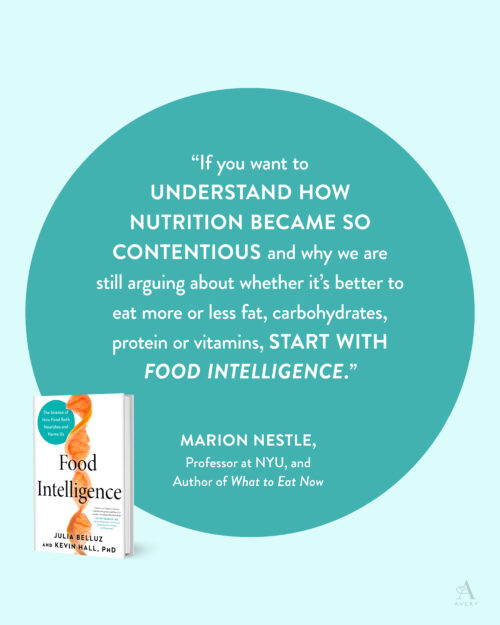I’m on the visionary panel. To register, click here.

Julia Belluz and Kevin Hall. Food Intelligence: The Science of how Food Both Nourishes and Harms Us. Avery, 2025. ~340 pages

This is the long-awaited manifesto from the journalist Julia Belluz and scientist Kevin Hall.
As the press release puts it, the book
digs deep into the fundamental, often overlooked, and always enthralling science of nutrition (the chemicals and energy we get from food) and metabolism (how our bodies use food)—covering what we know and the history of how we came to know it, up to the frontiers of research into the invisible forces that really shape our eating habits. The result is a sprawling tour of centuries of science into the wonders of food and the marvelous ways our bodies use it, for better and worse health.
As you can see, I wrote a blurb for the book (they edited it slightly).
If you want to understand how nutrition became so contentious and why we are still arguing about whether it’s better to eat more or less fat, carbohydrate, protein, or vitamins, you must read Food Intelligence. Well written, historically accurate, and scientifically rigorous, this book brings you up to the moment on contemporary dietary issues.
Here are two excerpts, the first from a discussion of one of Kevin Hall’s studies comparing high fat to high carbohydrate diets:
[Kevin] predicted that the body would select fuels for metabolism in a way that caused body fat loss to vary only a little, regardless of the proportion of carbs or fat a person was eating. Cutting carbs from a balanced diet caused the body to shift toward burning fewer carbs and more fat after several days. But surprisingly, reducing dietary fat by the same number of calories didn’t seem to change the mixture of carbohydrate and fat the body burned. The net result was that both diets led to similar body fat losses, but with a slight difference that contradicted the popular claims of low-carb acolytes like Atkins. The reduced-fat diet, Kevin’s model predicted, led to a little more body fat loss compared to the reduced-carb diet.
Maybe a calorie wasn’t exactly a calorie, Kevin told his audience. But the difference was in the opposite direction from the one claimed by the low-carb diet camp. P. 70
And here is one about why it’s useful to eat a variety of foods:
Food combinations matter—a complexity we’re only beginning to unravel. Pairing foods rich in plant-based iron with foods rich in vitamin C increases the body’s ability to absorb the iron, while drinking alcohol with a meal hampers nutrient absorption. Too many glasses of wine, and the ability to absorb vitamins and minerals, such as thiamine, vitamin B12, folate, and zinc, drops off. pp 221-222